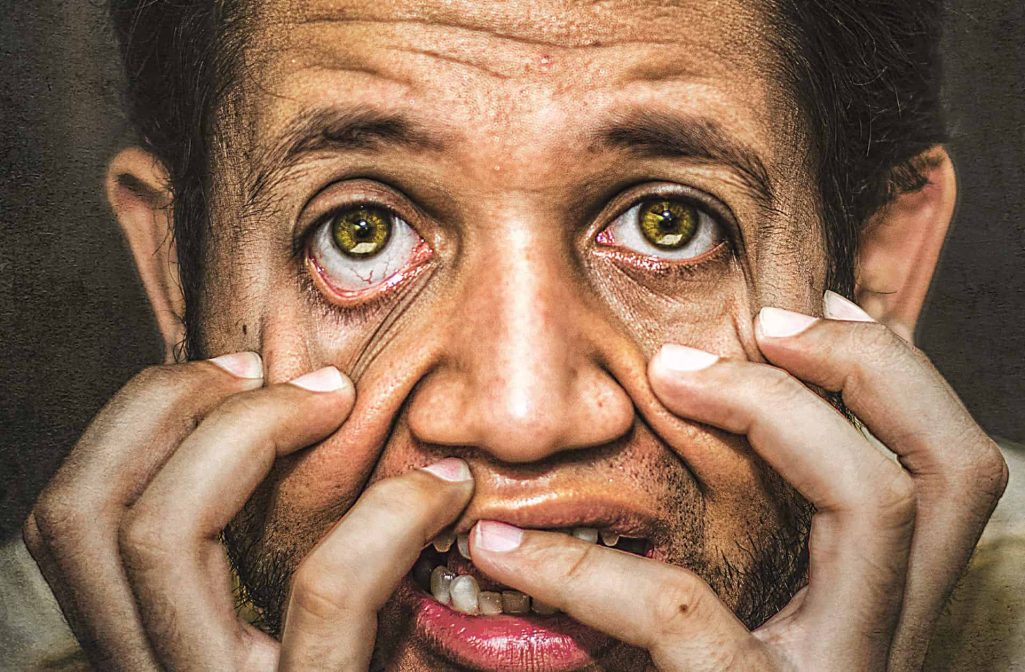
Below we discuss some ways of how to deal with anxiety without resorting to alcohol, drugs or prescribed medication (which over time can sometimes increase anxiety levels rather than reduce them). The techniques that work for any individual will vary. So it is worth trying these options and establishing for yourself which one or ones work best.
The most important reason of all for doing this is to avoid the risk of addiction.
Effects of anxiety
Anxiety is a common emotion and we all experience it at times. It is an instinctive response to danger. However if it begins to regularly impact on your daily life then it can be a problem. It can affect your mental health, giving rise to panic attacks (which can last 5-20 minutes and involve a fast beating heart and quicker breathing), phobia and stress. Physically it can raise your blood pressure. It can lead to low mood and depression.
Anxiety can present as breathlessness, dizziness, visual disturbances, sweating, pins and needles and tingling, wobbly legs, shakiness, heart pounding, lack of concentration, and needing to go to the toilet more often.
Anxiety can lead to a ‘vicious cycle’ of worry, overthinking things, feeling more anxious, changing our behaviour to counter this and going through the same cycle every time we face the same situation. So for example, panicking about driving on motorways leads to shaking and panic every time you are on a motorway, so you avoid motorways and go on side roads, and the next time you venture onto the motorway you face the same panic attack as you have done nothing to break the anxiety cycle. A technique to avoid this would be going on the motorway for just one junction and once you have handled that successfully, managing 2 junctions etc.
How to deal with anxiety and ways to tackle the stress
Other ways you can help address anxiety are to do some deep breathing – take a slow deep breath through your nose for a count of 7, exhale through your nose for a count of 11, for at least 3 minutes. This balances your oxygen and carbon dioxide levels.
If you are having a panic attack, hold your breath for 10 seconds 3 times a minute. When we are anxious we can sometimes lose touch with reality. A grounding exercise might help. So for example name 5 things that you see, 4 things you can touch, 3 things you can hear, two things you can smell – and finally take a deep breath.
Relaxation and mindfulness
Other techniques involve visualisation exercises. These can be particularly useful if you are trying to sleep and anxiety is preventing this.
An example would be to relax your body starting with the top of your head and moving down.. Create a picture in your mind and imagine that you are floating on a cloud. Feel the cloud comforting you and wrapping itself around you. You are sinking into its comfort – a lovely feeling. Think of a lovely place and think of yourself in your cloud near that place with the sun shining. You are comfortable and protected looking down on that place, floating and warmed by the sun. The sky is blue. Now let your cloud take you to where you are and place you gently back in your bed to sleep….
Muscle relaxation is important for dealing with the anxieties of the day. Relax your body as in the visualisation technique above. Mindfulness is also a way of dealing with anxiety. It allows us to reconnect with our bodies rather than be in a ‘mindless rush’ all the time. Another technique is to do a ‘body scan’ in your mind, becoming aware of each of your body parts in turn.
Other strategies can include putting any worries off (jot them down as they occur to you). And creating a time of day (not bedtime) when you will deal with them. And of course reduce your caffeine intake!
